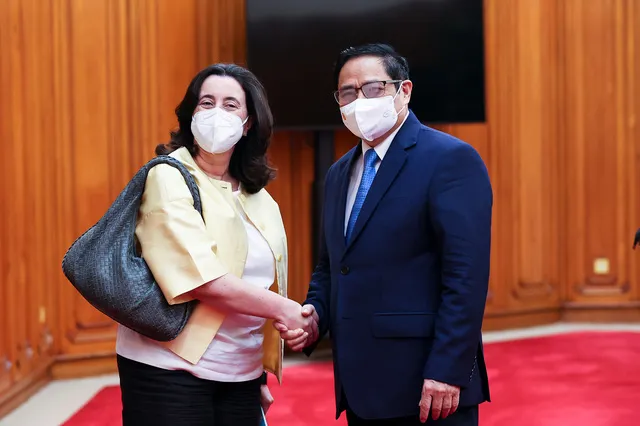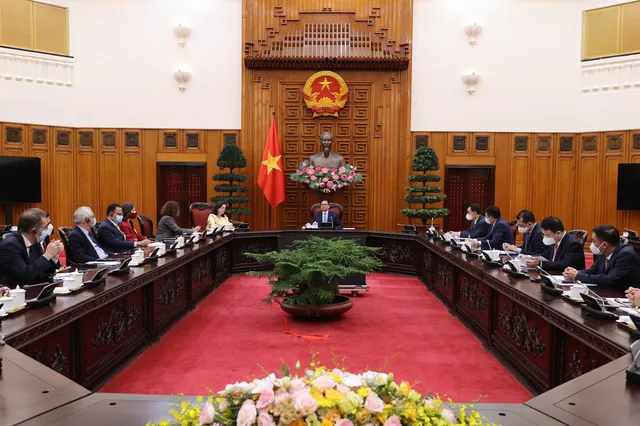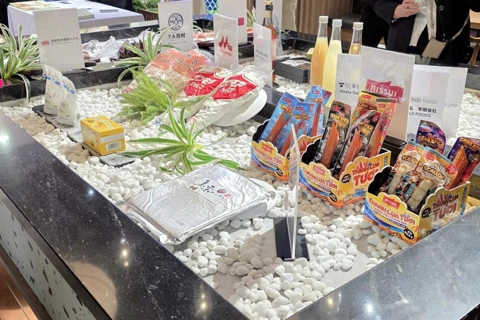Vietnam seeks World Bank expertise for sustainable development
The two sides are expected to continue working on major projects with high spillover effects, including transport infrastructure, healthcare, education, climate change resilience, and digitalization.
Vietnam is seeking expertise from international organizations, including the World Bank, to take better advantage of new driving forces for growth and ensure sustainable development.
| Prime Minister Pham Minh Chinh and World Bank Regional Vice President for East Asia and Pacific Manuela V.Ferro. Photos: VGP |
Prime Minister Pham Minh Chinh stressed the view in a meeting with World Bank Regional Vice President for East Asia and Pacific Manuela V.Ferro today [March 21].
According to Chinh, the World Bank has been Vietnam’s key partner and contributed actively to the country’s socio-economic development, especially the development of e-Government.
Chinh said 2021 was the most difficult period for Vietnam since the inception of Doi moi (Renewal) in 1986. However, the country has remained steadfast in adapting to the pandemic safely and flexibly.
“This laid the foundation for Vietnam to push for socio-economic recovery, and was named among top 20 countries in terms of FDI attraction,” he said.
The prime minister said Vietnam’s stance is to uphold multilateralism and remains a credible friend and partner of the international community, in turn contributing to peace, cooperation, and development in the region and the world.
Chinh stressed the significance for Vietnam to build a self-reliant economy but would not sacrifice social advancement for purely economic gains.
Chinh welcomed World Bank’s support for the country in the Covid-19 response, including non-refundable aid of US$6.2 million in 2020 to fight the pandemic.
In the coming time, Chinh called for the World Bank to continue providing Vietnam with non-refundable aid and concessional loans; support Vietnam in drafting the Vietnam 2045 Report to be in line with the country’s visions for development until 2045.
Chinh expected the two sides to work on major projects with high spillover effects, especially in fields of transport infrastructure, healthcare, education, climate change resilience, digitalization, innovation, and competitiveness enhancement.
| Prime Minister Pham Minh Chinh chairs the meeting. |
“Vietnam would continue to consult six development banks, including the World Bank, to finalize legal framework on ODA projects to ensure greater efficiency in utilizing this resource,” he added.
Regarding climate change, Chinh asked the World Bank to support Vietnam realize its commitments made at COP26.
Vietnam is the first among 30 countries receiving support from the World Bank for making a report on climate and national development, which remains a useful tool for the country to pursue sustainable growth.
Chinh called for the World Bank in Vietnam to become a coordinator center in the Mekong delta to better support strategic projects in the region.
World Bank’s Regional Vice President for East Asia and Pacific Manuela V.Ferro expressed her impression of Vietnam’s achievements in the past years, especially in Covid-19 response for economic recovery.
Ferro highlighted Vietnam’s major potential for socio-economic development, also its strong determination in climate change response.
The World Bank representative said the group is committed to supporting Vietnam in the next development phase, including the drafting of the Vietnam 2045 report to help the country realize its strategic goal to become a high-income country by that time.














